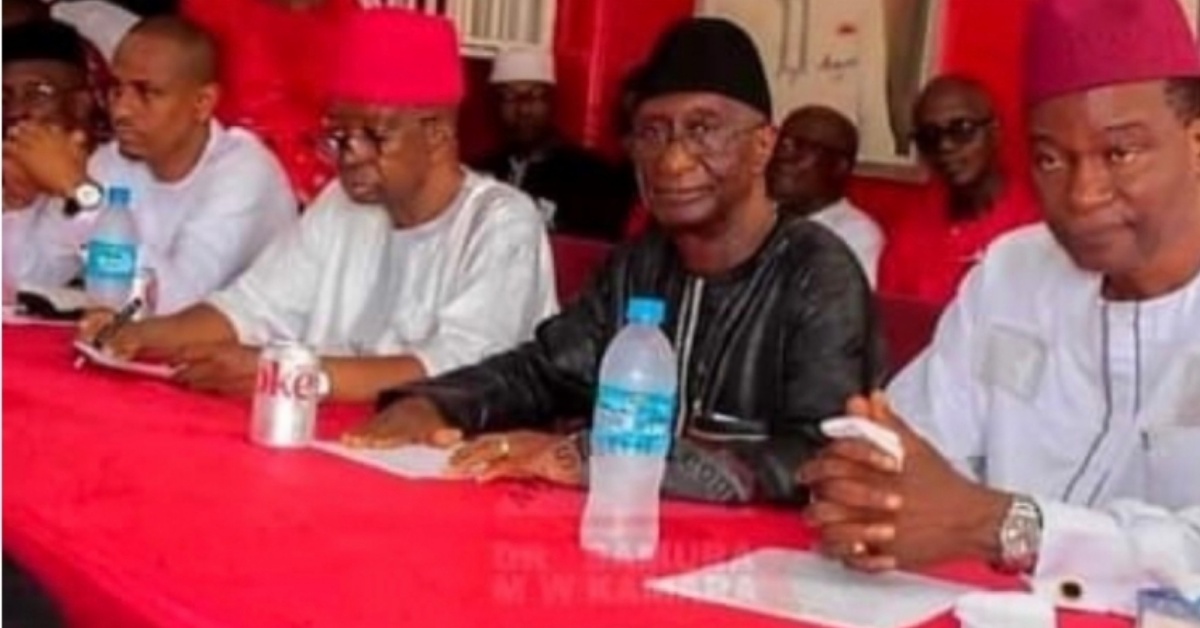The clamour for new and young leadership in the APC party is gaining momentum and with good reason. It is widely in acknowledged that rejuvenating the party and making it more appealing for governance requires a reset at the top.
Franklin Roosevelt once remarked, “We cannot always build the future for our youth, but we can build our youth for the future.” Fortunately, I can affirm that the young people in APC were moulded for this very moment.
Leadership is an integral component of any organisation, group, or community. It plays a pivotal role in shaping the direction, vision, and success of the entity it represents.
As expected, recently, there has been a noticeable surge in the number of young individuals expressing their interest in leadership roles particularly within political parties like the All Peoples Congress (APC) in Sierra Leone. While this upsurge in enthusiasm for leadership positions is encouraging and indicates a sense of maturity, civic engagement and responsibility among the youth, there are concerns regarding how some individuals approach their bid for leadership.
One of the primary issues that have emerged is the misunderstanding of what it truly means to bring in fresh leadership. While it is vital to introduce new perspectives, ideas, and energy into leadership positions, it is equally crucial to realise that genuine leadership goes beyond mere participation in previous governance structures. This is particularly so given some individuals who have held certain positions during past APC administrations now attempting to position themselves as the rightful leaders solely based on their prior experiences.
It is crucial to recognize that leadership is not solely about entitlement or past achievements. True leadership necessitates possessing a unique set of qualities and skills that surpass what one mas accomplished in the past. A leader must be capable of inspiring, uniting, and mobilizing people towards a common goal. They must embody integrity, vision, empathy, and the ability to make difficult decisions for the greater good.
Leadership is about service, sacrifice, and a commitment to the welfare and advancement of the people under their guidance. In the unique circumstances of the APC, such leadership must be less controversial and must engender division and animosity.
The leadership the APC seek now must prioritise the collective interests of the group, listen to diverse perspectives, and work towards consensus-building and collaboration.
Hence, it is crucial for young individuals aspiring to leadership roles within political parties like the APC to grasp this reality.
Furthermore, aspiring leaders need to embrace continuous self-improvement, learning, and growth. Leadership is a dynamic and evolving process that requires individuals to adapt, innovate, and evolve alongside changing circumstances and challenges. By honing their leadership skills, nurturing emotional intelligence, and cultivating a genuine passion for serving others, young leaders can effectively navigate the complexities of contemporary politics and steer their parties towards a brighter and more prosperous future.
Why Fresh Leadership:
It is obvious that the APC acknowledge the contributions and sacrifices of our past leaders, especially those who have had the opportunity to lead our party twice – in 2018 and 2023. It is obvious that they had their fair share of detractors within the party, and it is obvious that the majority of party members supported them during their time in leadership. However, the acrimony the APC has endured since 2018- accusations and counter- accusations of treachery, and failure to work together proved to be their greatest obstacles to success. Their mishandling of the outcome of the June elections, including the October Bintumani Dialogue and the subsequent Tripartite Committee Investigation, further divided the party and undermined its overall chances of regaining political power. As it stands, it should be understood that it is imperative to step aside and allow other comrades to lead the party in 2028 as both of them are considered one and the same. Their acrimonious ticket has caused considerable pain, suffering, and losses. A repeat would only further deepen a wedge within the party. Above all, they do not fit into the definition of the fresh face or voice the party desperately needs.
Embracing Realism and Forward Thinking:
In selecting the next leader, APC supporters must approach the decision with realism, impartiality, and a forward-looking mindset. The party and the country have already missed out on the opportunities presented by the 2018 and 2023 elections. Therefore, it is of utmost importance to ensure that the APC gets its leadership question right this time to effectively contribute to the nation’s progress. I, therefore, implore those who are vying for leadership positions to learn from the costly mistakes made in previous election cycles. These mistakes ranged from forging unholy alliances to positioning themselves for future consideration by the eventual winners. Many APC Comrades got entangled in power struggles without possessing the necessary qualifications, leading to the creation of factions that undermined the party’s strength and appeal. This serves as a reminder to avoid repeating such errors.
Conclusion:
To conclude, the APC must heed the increasing call for fresh, younger leadership. However, the misconceptions and misunderstandings surrounding this need must be addressed for the party to move forward cohesively. Learning from past experiences, particularly the failures of previous leaders, emphasizes the significance of selecting a leader who can unite, include, and govern effectively. By avoiding the costly mistakes of the past, the APC can position itself for success in 2028 and beyond, thereby meaningfully contributing to the development and prosperity of the nation.











